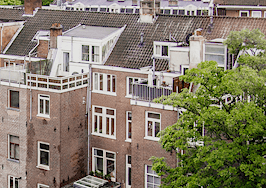Bungalo Homes, an Amherst Holdings-backed home-flipping startup, has expanded to Atlanta and Nashville.
Launched in the fall of 2018, Bungalo buys older or distressed homes, renovates them and then sells them on their platform, which lets buyers search, tour and close on the properties online.
It previously operated exclusively in Dallas, Tampa and Charlotte. The expansion, Bungalo President Deborah Bradley told Inman, came after evaluating market conditions and finding that both Atlanta and Nashville have increasing numbers of people looking for housing — both young families and people moving to these cities for work.

A Bungalo home for sale in Atlanta. Bungalo Homes.
“I live in Atlanta,” Bradley told Inman. “I kind of live and breathe these markets and know that people are yearning for renovated homes that are ready to move into.”
The company uses deep data and market analysis to find homes that are likely to increase in value and puts in anywhere from $20,000 to $250,000 into sprucing each one up. At the moment, Bungalo has $150 million in backing, with another $1 billion committed by real estate giant Amherst Holdings.
It has been using the recent growth to expand its platform — adding features for easy searching and pop-ups that tell details such as the year and days on the market. Bungalo also hopes to soon introduce digital renderings of what a house that is currently being repaired will look like in due time.

A Bungalo home up for sale in Nashville. Bungalo Homes.
“We’re really focused on meeting the consumers in that neighborhood at their level,” Bradley said, adding that they are careful about not creating homes that drastically increase property values and eventually make the entire neighborhood unaffordable for its original residents. “We’re not trying to take a home and overbuild for that neighborhood. We’re really mindful about helping buyers get into neighborhoods that they can afford.”
Bradley said that, as the years goes on, Bungalo hopes to expand its outreach and bring the total number of homes sold to over 500 by the end of 2020. They are currently working to bring more homes on the market in different cities — an additional 15 to 30 houses in Nashville and another 35-40 in Atlanta.
“We’re really trying to turn around those homes and make them valuable both for the house itself and for the neighbors around them.”













